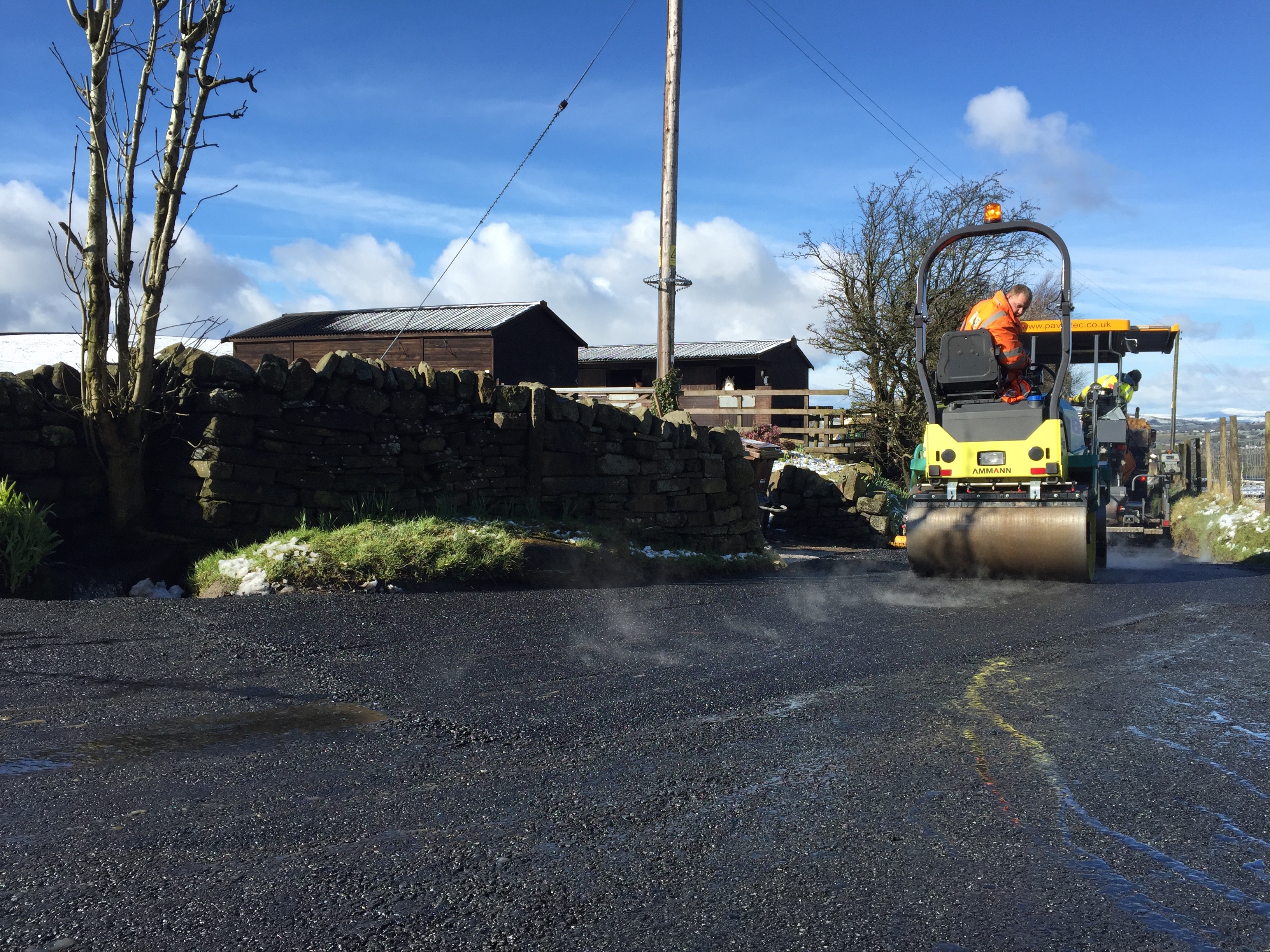
Rural lanes and paths have to be able to withstand the elements
Farm lanes or farm tracks are regularly used for heavy agricultural vehicles, such as tractors and wagons. Not only are the roads frequented by heavy traffic, they are also under stress from other elements such as animals and the weather as they are in rural settings.
These types of roads generally also tend to be directly in between fields which absorb a substantial amount of water, which in turn can then run onto the roads.
Drainage solutions are often needed and planning done to make sure water doesn’t hold on the surface of the road and then lead to erosion of the road giving it a less life expectancy.
Farm lanes often have hardcore surface if not previously tarmacked surfaced for a cost-effective option but this tends not to last due to the elements put upon it. It tends to become loose and can be quite a mess.
What is the Best Grade of Tarmac for Farm Lanes
What would mostly be recommended on roads such as these would be an AC14 surface course which highly durable and can put on at a good depth to ensure a long lasting life.
Usually the lane will be covered with a covering of 60-75mil to ensure it is extra durable against the weight of the vehicles and the weather elements they are open to on a daily basis.
This can be seen as a cost-effective option compared to other surface materials. A binder course could also be an option for the same reason, although the finish is quite as smooth in texture as all other surface courses it will certainly be a substantial job which would last for a considerable amount of time.
Most farm lanes can be very quick to surface due to the widths they are and installed by a machine paver providing the sub base is relatively level.


